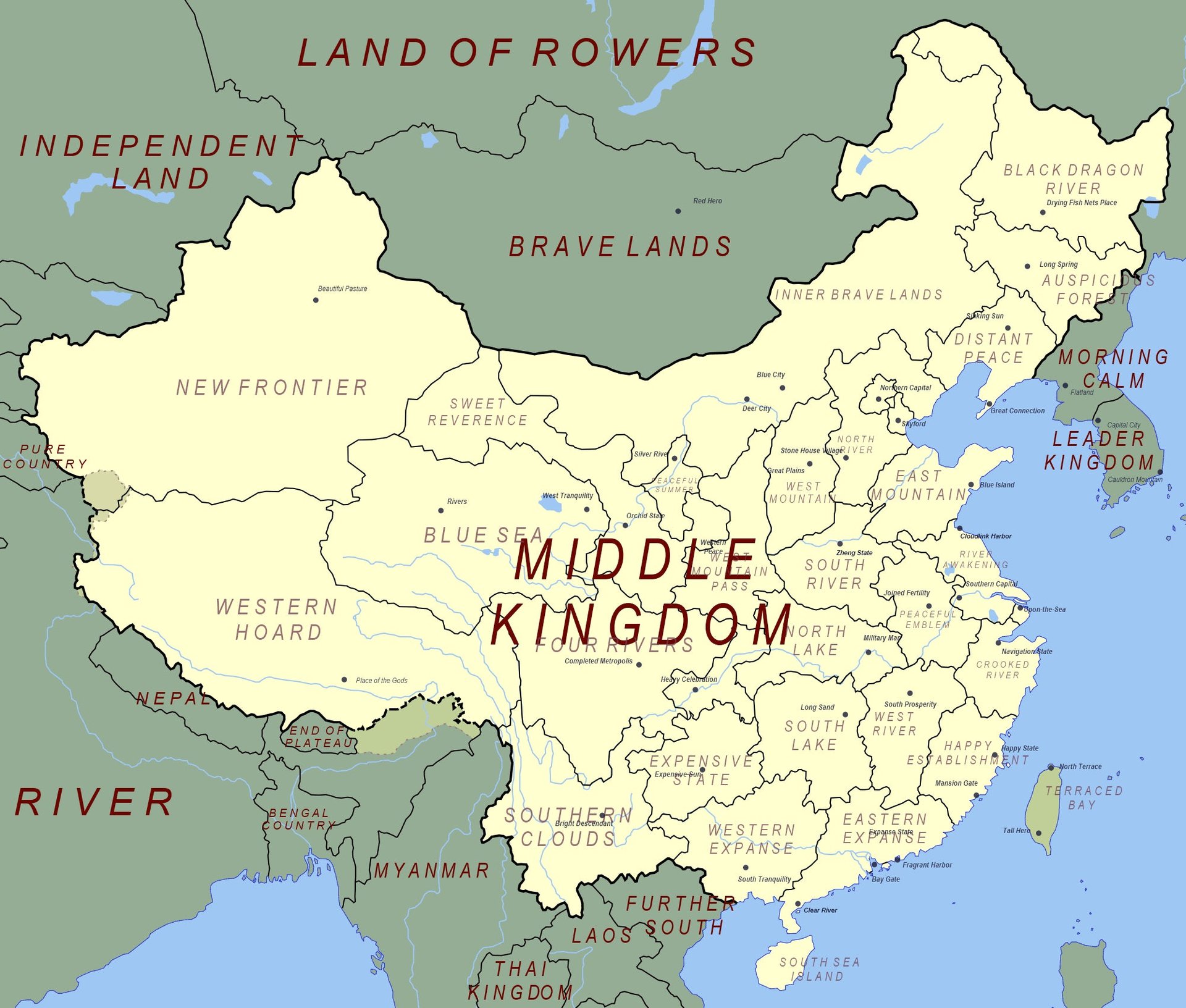In China’s map of the world, Russia is the “Land of Rowers” and North Korea is “Morning Calm”
One of the pleasures of studying the Chinese language is realizing that a huge number of words actually consist of combinations of smaller words. For example, the word for camera, zhaoxiangji, literally translates as something like “mutual flash machine”. Which, if you think about it, makes sense but…yeah. Never mind.

One of the pleasures of studying the Chinese language is realizing that a huge number of words actually consist of combinations of smaller words. For example, the word for camera, zhaoxiangji, literally translates as something like “mutual flash machine”. Which, if you think about it, makes sense but…yeah. Never mind.
Along these lines, this nifty map (of unknown origin, but pulled from the Shanghaiist Facebook feed) shows China with the names of its provinces (and nearby countries) translated literally into English. Most of them are kind of meh, but a few amusing ones stick out:
- Liaoning Province is called, quite ominously for a province bordering North Korea, “distant peace”.
- North Korea itself is referred to as “Morning Calm”, which, given the country’s recent behavior, doesn’t seem to fit at all
- Far-western, bone-dry Qinghai Province translates into “Blue Sea”, which would be fine except that it’s thousands of miles from the coast.
- Guizhou, one of China’s poorest provinces, is nonetheless referred to as “Expensive State”.
- Then there’s Russia which, oddly, translates to “Land of Rowers”, conjuring up an image of a fur coat wearing crew team spiriting down the Volga.
Though it isn’t on this map, it’s often remarked that the Chinese word for the United States, meiguo, translates to “beautiful country”. Alas, this has less to do with an appreciation of the American landscape than the fact that meiguo sounds vaguely similar to America. All this goes to show how little the literal meanings of place names even matter. For example, what does the name “Hong Kong” evoke? For me, it’s tall buildings, finance, British customs, kung fu movies, and great dim sum. Fragrant harbor? Not quite. But that’s exactly what Hong Kong means.